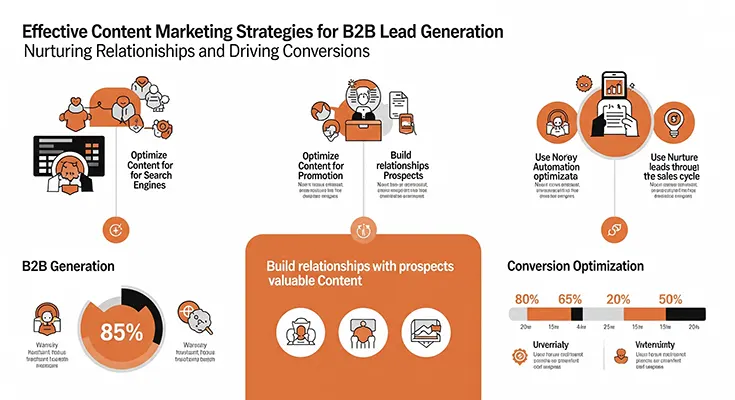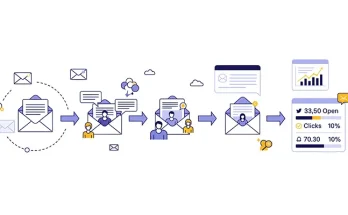In the realm of B2B lead generation, content marketing has emerged as a pivotal driver of success, enabling businesses to engage, educate, and attract potential leads in a meaningful and impactful manner. By crafting and implementing effective content marketing strategies tailored specifically for B2B lead generation, organizations can establish themselves as thought leaders, build credibility, and ultimately drive conversions. This article delves into key strategies and best practices that unlock the potential of content marketing to fuel B2B lead generation efforts and foster lasting business relationships.
1. In-Depth Thought Leadership Content
Establishing thought leadership through insightful, in-depth content can be a powerful strategy for attracting and nurturing B2B leads. Providing valuable resources such as whitepapers, industry reports, and research findings not only showcases expertise but also demonstrates commitment to educating potential clients. By addressing industry challenges, sharing best practices, and offering unique insights, businesses can attract quality leads seeking expertise and guidance, thus positioning themselves as reliable partners in their respective fields.
2. Targeted and Personalized Content
Personalization is key in B2B lead generation, and tailored content plays a significant role in establishing meaningful connections with potential clients. Utilizing personalized email campaigns, industry-specific webinars, and customized content assets designed to address specific pain points and needs, businesses can resonate with their target audience on a deeper level. Such personalized content fosters trust and relevance, ultimately driving engagement and converting leads into long-term partners.
3. Interactive and Engaging Content Formats
Interactive content, such as quizzes, calculators, and interactive infographics, can notably enhance B2B lead generation efforts by delivering engaging and dynamic experiences. By leveraging these interactive formats, businesses can capture the attention of potential leads, encourage active participation, and effectively communicate complex information in an accessible and digestible manner. The interactivity and engagement offered by such content formats can lead to increased lead generation and improved prospects for conversion.
4. Case Studies and Success Stories
Showcasing real-world examples of successful partnerships and solutions can act as compelling content for B2B lead generation. Case studies and success stories offer proof of concept and provide potential clients with tangible evidence of the value and impact a business can deliver. By highlighting specific challenges, strategies, and outcomes, businesses can effectively demonstrate their expertise and credibility, thereby instilling confidence in potential leads and driving them towards conversion.
5. Content Alignment with the Buyer’s Journey
Aligning content with the different stages of the buyer’s journey is crucial for effective B2B lead generation. By crafting content that addresses the awareness, consideration, and decision-making stages, businesses can guide leads through a seamless and relevant content experience. This targeted approach ensures that potential clients receive the right information at the right time, thereby nurturing their interest, addressing their concerns, and ultimately paving the way for conversion.
Effective content marketing strategies play an instrumental role in B2B lead generation by nurturing relationships, building credibility, and driving conversions. By leveraging thought leadership, personalized content, interactive formats, success stories, and strategic content alignment, businesses can attract, engage, and convert high-quality B2B leads, ultimately fostering enduring partnerships and driving sustainable growth. Embracing these content marketing strategies empowers businesses to make meaningful connections, establish industry authority, and achieve success in the competitive landscape of B2B lead generation.





